What inspires someone to pick up the cello later on in life? Cellist, educator and creator of online cello school Cello Discovery Carolyn Hagler explores how learning the cello has enriched the lives of four adult learners
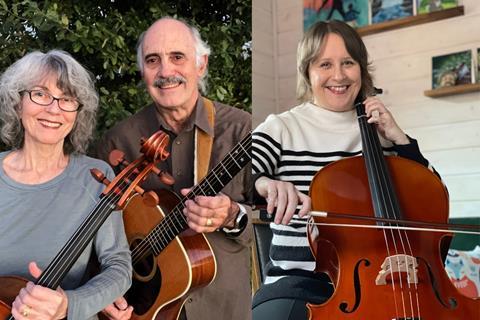
Discover more Featured Stories like this in The Strad Playing Hub
Music has long been recognised for its therapeutic qualities, offering solace in times of sorrow, and a means of self-expression for those maneuvering through life’s challenges. For four adults spread out across the globe, the cello has become more than just an instrument — it has become a powerful tool for healing. Whether coping with grief, chronic illness, emotional exhaustion, or the physical challenges of aging, these individuals have discovered that the act of learning to play the cello as adults not only provides an outlet for creativity, but also offers profound emotional, mental, and even physical benefits.
Dena’s Journey: A Life Reclaimed Through Music
For Dena Baker, the cello represents a long-awaited connection to both her late son and her husband. After years of dabbling with various instruments — from the mandolin to the djembe drum — life’s responsibilities and physical limitations always seemed to foil her musical aspirations. But in 2020, a devastating family tragedy left Dena grappling with profound grief after the sudden loss of her son. For a time, not only did music seem out of reach, but life no longer felt manageable, as it was buried under the weight of loss.
Then, in the midst of her retirement, she found inspiration while searching for music online. Dena stumbled upon a cello performance and was deeply moved by the beauty of the instrument’s sound.
’I knew the cello would be the perfect choice for me,’ she recalls. At 70 years old, Dena began learning the cello, using it as both a personal tribute to her son and a path toward emotional healing. ’I never would have guessed that learning the cello would have so many benefits,’ she says.
Through focused practice, she discovered not only a sense of accomplishment, but a growing physical and mental strength. The cello became a companion, allowing her to step outside of her grief, while the shared experience of playing music with her husband rekindled a sense of togetherness. And in her heart, she believes her son is listening - and would approve wholeheartedly.
Amy’s Path: Overcoming Chronic Pain and Finding Strength
For Amy Stark, the cello has become a source of strength in the face of ongoing health challenges. Diagnosed with both Hypermobile Ehlers-Danlos Syndrome (hEDS) and Multiple Sclerosis (MS), Amy battles chronic pain, muscle weakness, and nerve flare-ups on a daily basis. Despite the physical toll these conditions take on her body, Amy has found a unique therapeutic value in learning the cello.
’The cello journey has helped me develop a deeper sense of presence and awareness in my body,’ she shares. ’It keeps me from being stuck on the couch all day.’
With the help of Alexander Technique instruction, hand therapy and her cello teacher, Amy has managed to address some of the physical obstacles that have historically hindered her ability to play — particularly issues with finger stability and shoulder pain. The cello’s intricate interaction of posture, bow hold, and left-hand finger strength requires her full attention, offering a reprieve from the constant focus on pain.
’Playing the cello has given me confidence in my ability to continue learning as I age,’ Amy notes. ’It keeps my brain sharp, improves my mental health, and provides a welcome escape from the chaos of daily life.’
Through her cello practice, Amy has cultivated a sense of balance with her body’s limitations. Despite the challenges of her conditions, the cello provides her not only with emotional relief but also with a daily reminder of her capacity for growth.
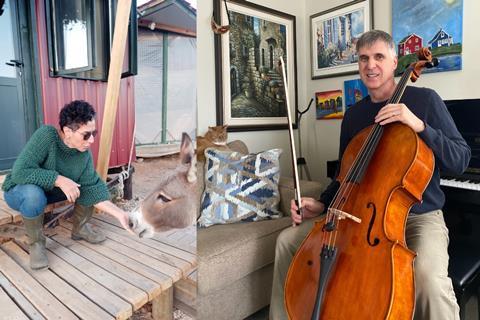
Nesrin’s Retreat: Finding Connection Through Music
For Nesrin Spira, who lives off-grid in Turkey, the cello has brought connection to both herself and a larger community. Living in a remote area near the Aegean Sea coast, with limited access to social opportunities, Nesrin found that learning the cello through Cello Discovery™ has provided not just the technical guidance she needed, but also a supportive community of fellow learners.
’At first, I didn’t expect to find such a heartwarming group of people,’ she says. ’This community has truly taken the loneliness out of my life.’ Learning to play the cello as an adult has helped Nesrin not only continue doing something she loves, but also embrace the challenges of aging without fear.
Nesrin finds solace in the cello’s ability to keep her present in the moment. ’I stopped worrying so much about getting older and focused my thoughts on improving my cello playing,’ she reflects. The cello has become a means for her to combat the anxieties of aging, while offering an emotional release through the cello’s beautiful tone. For Nesrin, it is the sense of purpose and self-expression music provides which has made learning the cello so invaluable.
Jean’s Resolve: Balancing Caregiving and Self-Care
Jean Lachance’s story is one of resilience in the face of caregiving responsibilities. As the primary caregiver for both his wife, who has battled Multiple Sclerosis since 1997, and his elderly father, Jean’s days have been filled with medical appointments, household maintenance, and the constant emotional demands of caregiving. Despite these pressures, Jean found an unexpected source of peace and joy in learning the cello at the age of 59.
’I started playing the cello during the early days of the Covid-19 pandemic,’ Jean explains. ’With more time on my hands due to social restrictions, I decided to pursue this lifelong dream.’
Playing the cello has allowed Jean to carve out time for himself, offering a healthy boundary between caregiving duties and personal well-being. ’It is a stress reliever,’ he says. ’Sometimes, after playing slow romantic pieces, I feel almost the same benefit as meditation.’
For Jean, the act of playing the cello is not only a form of self-care but a way to stay positive and focused in the face of life’s demands. ’Learning the cello challenges both my mind and body coordination,’ he shares, noting that the cello’s demand for focus helps clear his mind and push away the worries. ’The beauty and gentleness of the music counterbalance the responsibilities of caregiving and give me a sense of peace.’
The stories of Dena, Amy, Nesrin, and Jean are a testament to the notion that it’s never too late to begin a musical journey — and the rewards of doing so are immeasurable.
Carolyn Hagler is a lifelong cellist and educator, and creator of CelloDiscovery.com
Read: Free violin lessons enrich adult learners’ lives in rural Scotland
Read: Cello Notes: Music and the Urgency of Time by adult cello learner, Mavis Himes
Discover more Featured Stories like this in The Strad Playing Hub
The number one source for playing and teaching books, guides, CDs, calendars and back issues of the magazine.
In The Best of Technique you’ll discover the top playing tips of the world’s leading string players and teachers. It’s packed full of exercises for students, plus examples from the standard repertoire to show you how to integrate the technique into your playing.
The Strad’s Masterclass series brings together the finest string players with some of the greatest string works ever written. Always one of our most popular sections, Masterclass has been an invaluable aid to aspiring soloists, chamber musicians and string teachers since the 1990s.
The Canada Council of the Arts’ Musical Instrument Bank is 40 years old in 2025. This year’s calendar celebrates some its treasures, including four instruments by Antonio Stradivari and priceless works by Montagnana, Gagliano, Pressenda and David Tecchler.



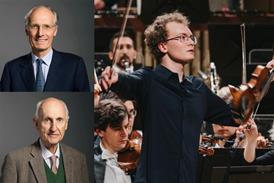
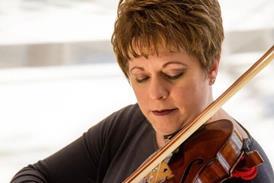






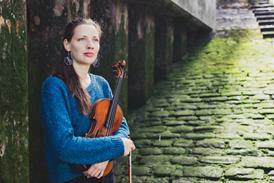
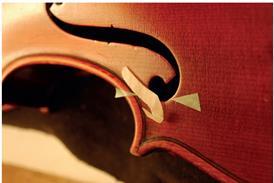
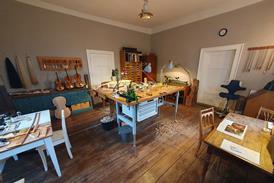
























No comments yet